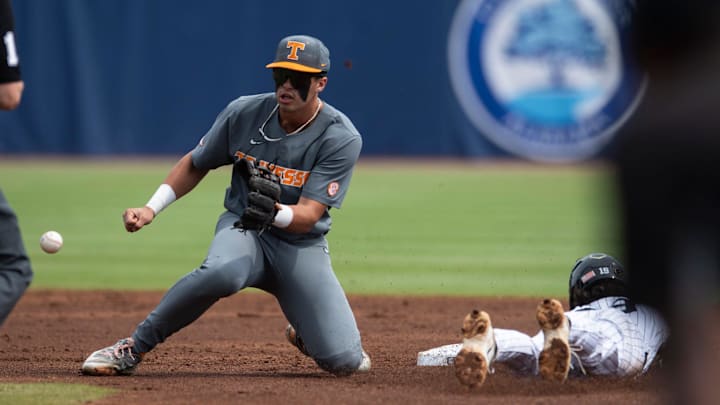With Mizzou baseball’s season officially in the books — for all the wrong reasons — I figured it was the perfect time to look back at the worst conference records in each SEC team’s history. Just a little something to lift everyone’s spirits.
Disclaimer: Due to rule changes over the years and teams shifting conferences, not all have played a full 30-game SEC schedule. These records reflect each team’s worst conference finish in a season with at least 24 games.
Tennessee: 4-23 (1989)
During the 1980s, Tennessee baseball had yet to establish itself as a powerhouse. With just two winning seasons in SEC play over the previous 14 years, the Volunteers were in the midst of an unremarkable era for the program. The 1988 season marked the second and final year for head coach Mark Connor, who left afterward to join the coaching staff of the Arizona Diamondbacks. He departed with an overall record of 45-60 at Tennessee.
Tennessee struggled at the plate in 1988, finishing last in the SEC in both batting average and slugging percentage. The team’s .273 average and .374 slugging percentage help explain why run production was so limited. The top of the lineup provided some consistency — six of the seven players who appeared in more than 45 games hit above .250, though only four posted a slugging percentage above .400. Beyond that group, production dropped off sharply, with the rest of the roster hitting just over .220 combined.
The Volunteers’ 125 extra-base hits were near the bottom of the conference, with their doubles leader recording just 14 and the team’s home run leader hitting five. Strikeouts were another issue, as Tennessee finished with the second-most in the SEC and a strikeout rate of nearly 16.5 percent.
On the mound, Tennessee’s biggest issue was allowing too many hits. The Volunteers led the SEC with 10.29 hits allowed per nine innings, which contributed to a team ERA of 5.16 — the second worst in the conference. Of the three pitchers who made more than 10 starts, the best ERA belonged to Allen Halliday at 4.46. In fact, no pitcher on the roster — starter or reliever — finished the season with an ERA below 4.00. The best mark came from Robbie Young, who posted a 4.15 ERA but pitched just 39 of Tennessee’s nearly 500 total innings.
The bullpen didn’t offer much more support than the rotation. Outside of Young, the average ERA among relievers was over 5.00, leaving the Volunteers without many reliable options in high-leverage situations — especially concerning given how many baserunners they allowed each game.
